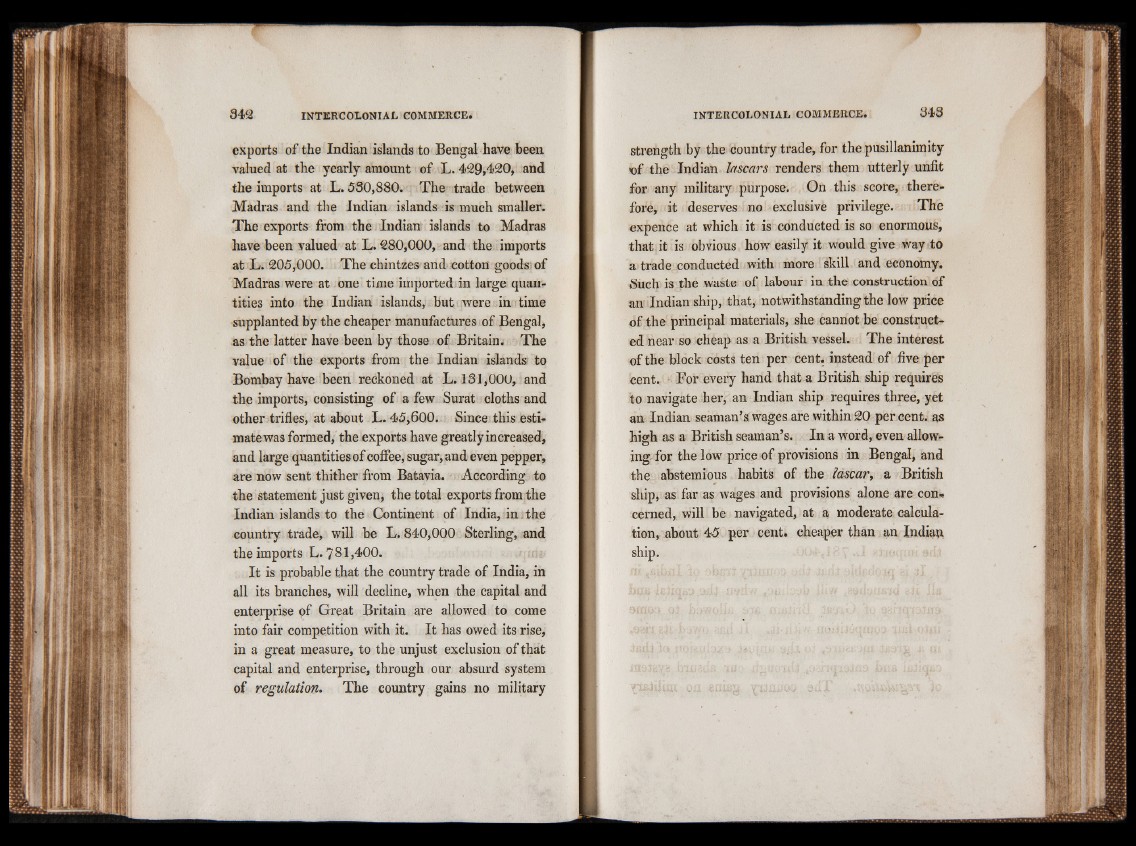
exports of the Indian islands to Bengal have been
valued at the yearly amount of L. 429,420, and
the imports at L. 530,880. The trade between
Madras and the Indian islands is much smaller.
The exports from the Indian islands to Madras
have been valued at L. 280,000, and the imports
at L. 205,000. The chintzes and cotton goods of
Madras were at one time imported in large quantities
into the Indian islands, but were in time
supplanted by the cheaper manufactures of Bengal,
as the latter have been by those of Britain. The
value of the exports from the Indian islands to
Bombay have been reckoned at L. 131,000, and
the imports, consisting of a few Surat cloths and
other trifles, at about L. 45,600. Since this estimate
was formed, the exports have greatlyincreased,
and large quantities of coffee, sugar, and even pepper,
are now sent thither from Batavia. According to
the statement just given, the total exports from the
Indian islands to the Continent of India, in the
country trade, will be L. 840,000 Sterling, and
the imports L. 781,400.
It is probable that the country trade of India, in
all its branches, will decline, when the capital and
enterprise of Great Britain are allowed to come
into fair competition with it. It has owed its rise,
in a great measure, to the unjust exclusion of that
capital and enterprise, through our absurd system
of regulation. The country gains no military
strength by the country trade, for the pusillanimity
of the Indian lascars renders them utterly unfit
for any military purpose. On this score, therefore,
it deserves no exclusive privilege. The
expence at which it is conducted is so enormous,
that it is obvious how easily it would give way to
a trade conducted with more skill and economy.
Such is the waste of labour in the construction of
an Indian ship, that, notwithstanding the low price
of the principal materials, she cannot be constructed
near so cheap as a British vessel. The interest
of the block costs ten per cent, instead of five per
cent. • For every hand thata British ship requires
to navigate her, an Indian ship requires three, yet
an Indian seaman’s wages are within 20 per cent, as
high as a British seaman’s. In a word, even allowing
for the low price of provisions in Bengal, and
the abstemious habits of the lascar, a British
ship, as far as wages and provisions alone are concerned,
will be navigated, at a moderate calculation,
ahout 45 per cent, cheaper than an Indian